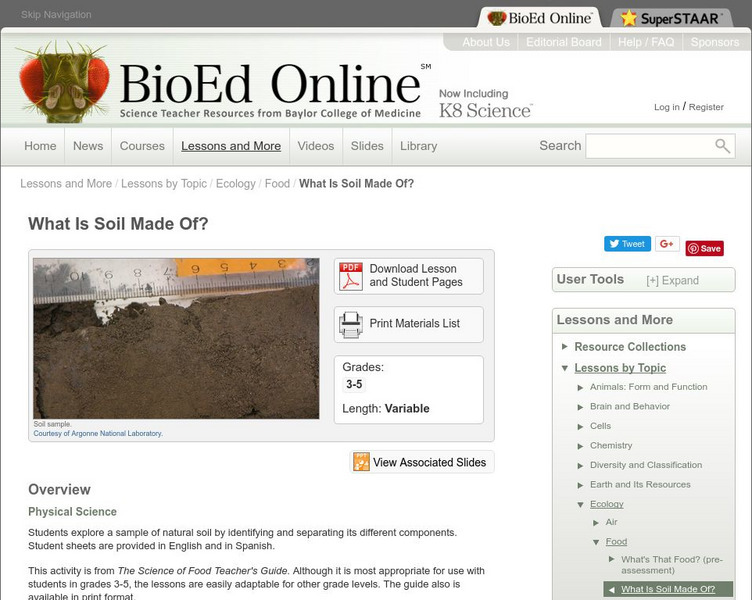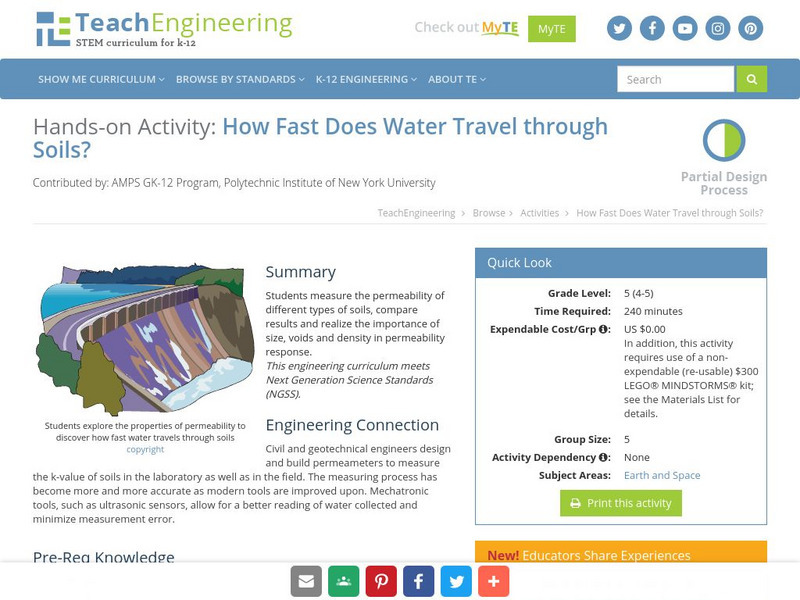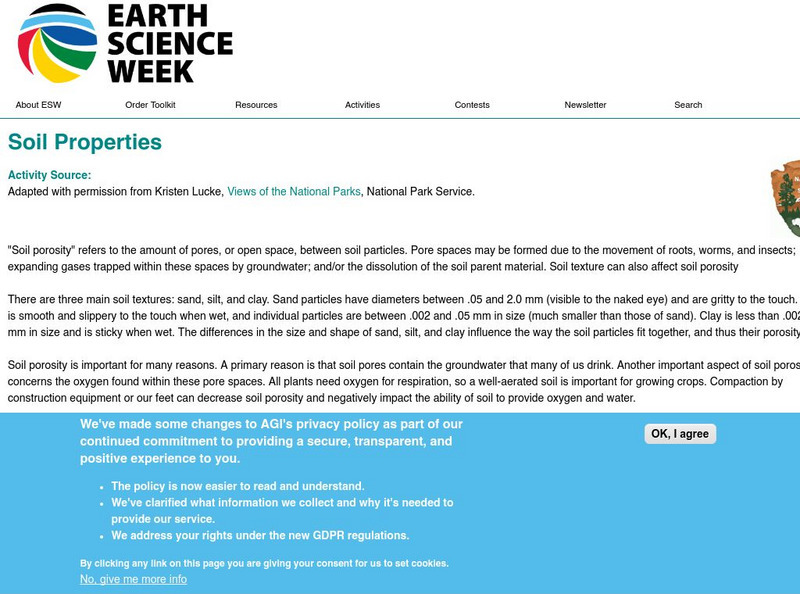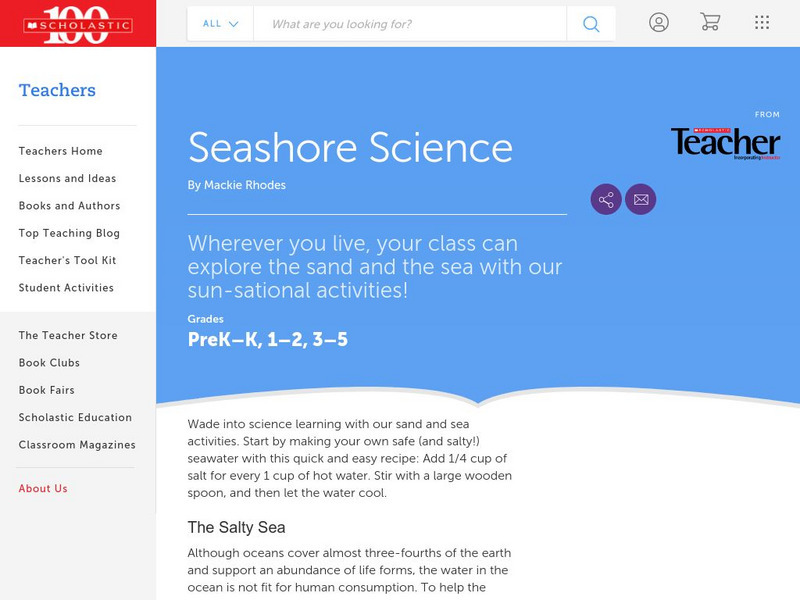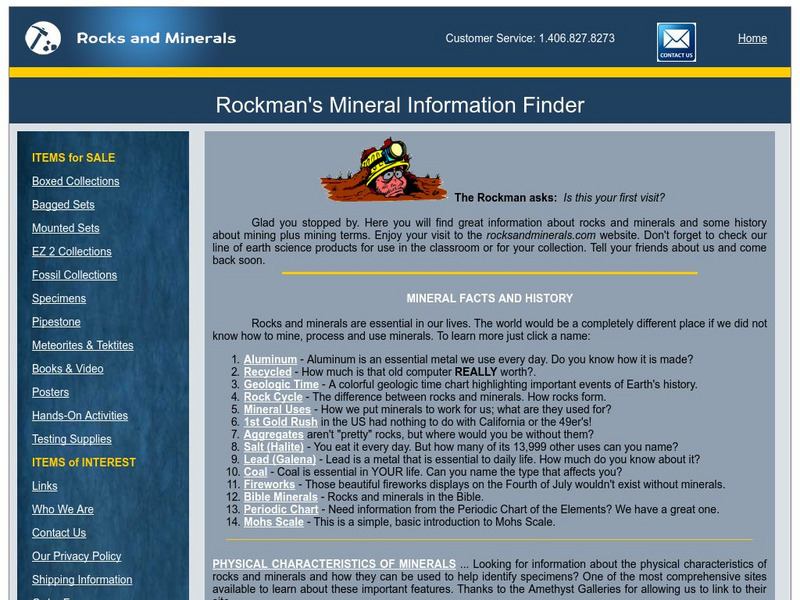Curated OER
Animals Between the Sand Grains -- Meiofauna
Students begin the lesson by collecting sand at low tide from a local beach. They place each specimen on trays with a tiny amount of seawater. After a week, they can observe the meiofauna present in the sand through a microscope. They...
Curated OER
Oolitic Sand: An Introduction
Fourth graders investigate the characteristics of different types of sand. They compare and contrast the types of sand by making observations with a dissecting microscope. Then students draw what is seen and include shape, color, and...
Curated OER
Which Sand Contains The Most Salt?
Young scholars investigate the salinity levels of sand samples taken from several different sources. They conduct tests and observations to measure the current salt levels. They develop a hypothesis from the experiment to determine the...
Curated OER
Screening River Rocks
First graders explore river rocks. Searching with screens and containers, 1st graders identify the different kinds and sizes of rocks. They separate rocks into containers according to pebbles, gravel and sand. Students write about their...
Curated OER
How Much Water Will The Desert Hold?
Students examine the characteristics of the desert environment. They experiment with a container which they fill with sand and measure the amount of water that can be absorbed in the container. They compare this with the conditions in...
Curated OER
Junior Engineering Retaining Walls
Students name the properties of sand as related to the properties and the building of retaining walls. They build a retaining wall and state how retaining walls are used.
Science Buddies
Science Buddies: How Does Ratio of Sand to Cement Affect Strength of Concrete?
Concrete is one of those things that most of us don't think about much, yet we use it every day. We walk on concrete sidewalks, drive on concrete roads, and live and work in buildings with foundations made of concrete. It is a durable...
Science Buddies
Science Buddies: Beach Bum Science: Compression of Wet Sand
Did you ever notice the cool patterns around your footprints when you take a walk in the wet sand at the beach? The pressure of your feet has effects far outside your footprints. Here's a project that uses a simple experimental apparatus...
Science Buddies
Science Buddies: Under Pressure: Sand Under Lateral Compression
Here's a project that involves a different kind of sandbox than the ones you usually think of. This one has a moving wall inside, acting like a piston, to compress the sand. You can make layers using two different colors of sand, and...
Science Buddies
Science Buddies: Sand Structure: Measuring Density and Porosity of Sand
For many kids, a day at the beach would not be complete without building a sandcastle. Have you ever wondered how it is that you can pack sand into a mold for a sandcastle? Do some kinds of sand pack better than others? This project will...
BioEd Online
Bio Ed Online: What Is Soil Made Of?
Do you know what makes up soil? Soil is a combination of many different living and non-living things and provides raw materials needed by all living things. In this lesson plan young scholars will explore a sample of natural soil by...
Other
Mainland Aggregates, Ltd: Many Uses of Sand
This infographic includes a calculation for how many grains of sand are on the Earth. It discusses what sand is, its history of use by humans, and its many uses in modern times.
Scientific American
Scientific American Slideshow: A Grain of Sand: Nature's Secret Wonder
Get an up-close microscopic view of grains of sand from various locations around the world in this slideshow from Scientific American.
TeachEngineering
Teach Engineering: Obi Wan Adobe: Engineering for Strength
Students conduct an experiment to determine how varying the composition of a construction material affects its strength. They make several adobe bricks with differing percentages of sand, soil, fibrous material and water. They test the...
TeachEngineering
Teach Engineering: How Fast Does Water Travel Through Soils?
Students measure the permeability of different types of soils, compare results and realize the importance of size, voids and density in permeability response.
Discovery Education
Discovery Education: The Dirt on Soil
This interactive website explores the various soil layers and introduces you to the lifeforms that live in those soil layers.
Other
Massachusetts Department of Education: Sunlight Warms Earth's Surface
This unit contains a series of lessons that allow students to explore the effect of sunlight on Earth's natural surfaces of sand, soil, rock, and water. In addition, students explore how the color and material of a surface affects how...
BBC
Bbc Schools: Ks2 Bitesize: Science: Materials: Rocks and Soils
Save Earth from the evil villain who is draining all the life from it. Following the activity, read more about rocks and soil, and then take a quick quiz to check for understanding.
University of California
Foss Web: Pebbles, Sand, and Silt Activities [Pdf]
Discover how pebbles, sand, and silt are used around us everyday in this set of activities for students.
Regents of the University of Michigan
Animal Diversity Web: Echinarachnius Parma (Sand Dollar)
Articles provieds information on the habitat, behaviors, and appearance of sand dollars, particulaly those that live off the coast of the northern United States.
National Association of Geoscience Teachers
Nagt: The Chemistry of Sand: Not All Beaches Are Created Equal
A laboratory activity where students investigate the chemistry of sand based on whether and how much it reacts with hydrogen chloride. They then make predictions and observe what happens when they do the same with various shell pieces.
American Geosciences Institute
American Geosciences Institute: Earth Science Week: Soil Properties
Students investigate soil porosity by building a model using the three main soil textures: sand, silt, and clay.
Scholastic
Scholastic Instructor: Seashore Science
Come and learn with this incredible seashore science resource. The content includes fun facts, experiments, reproducible activities, resources and more.
Other
Rockmans Trading Post: Welcome to the Mineral Information Finder
During your lifetime, you will use more than a million pounds of rocks, minerals, and metals. Dig through this web site and find out how.












